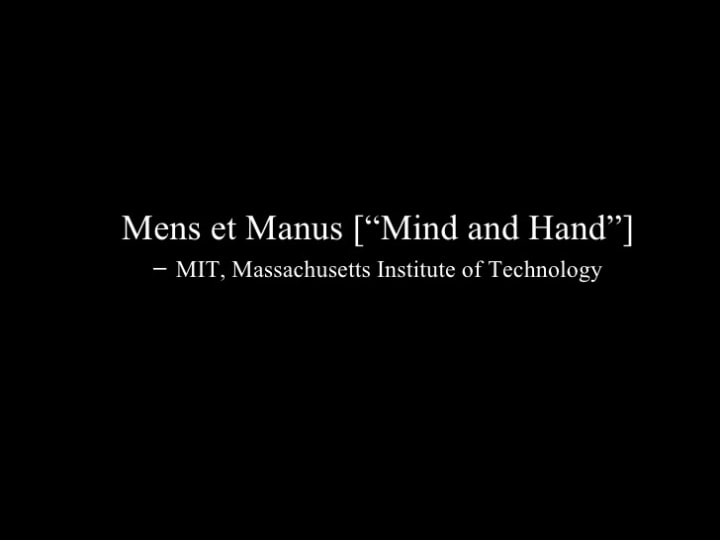
I often refrain from discussing financial matters with friends because I am often labeled as calculating or meticulous. Or if I were to analyze a certain aspect of life in detail, such as emotions, people would say I'm practical. Why would one be so analytical and dry in matters of the heart? Many people I know tend to think that I overcomplicate everything.
Expanding on this observation, I have noticed that due to a lack of education in strategic thinking and critical reasoning, many individuals nowadays live by a passive philosophy and choose a reactive lifestyle. Regarding financial matters, they claim that being rich or poor is predetermined, or that even if they have a lot of money, they won't be able to keep it until they die. In love, they believe that being together is a matter of fate, and if the fate ends, no matter how hard they try to hold on, it won't work. When it comes to work or education, they think that being diligent guarantees a prosperous future. They prefer such thoughts because it makes them feel comfortable and makes life seem easier.
But the truth is entirely opposite.
The essence of life is difficulty.
This is a quote from the book 'The Road Less Traveled' by Dr. M. Scott Peck, a book that I highly appreciate.
“Life is difficult. This is a great truth, one of the greatest truths. It is a great truth because once we truly see this truth, we transcend it. Once we truly know that life is difficult-once we truly understand and accept it-then life is no longer difficult. Because once it is accepted, the fact that life is difficult no longer matters.”
― M. Scott Peck,
The Road Less Traveled: A New Psychology of Love, Traditional Values and Spiritual Growth
"Life is difficult. This is a great truth, one of the greatest truths. It is called the great truth because once you fully accept it, you transcend it. Only when we truly know that life is difficult, and we truly understand and accept it, then life will no longer be difficult. This is because once the truth is accepted, the problem of life being difficult ceases to be a problem."
“Whenever we seek to avoid the responsibility for our own behavior, we do so by attempting to give that responsibility to some other individual or organization or entity. But this means we then give away our power to that entity.”
― M. Scott Peck, The Road Less Traveled: A New Psychology of Love, Traditional Values and Spiritual Growth
"Every time we want to evade taking responsibility for our own lives, we do so by allowing someone else, another organization, or some divine spirit to assume that responsibility. But that means we have relinquished our power by handing it over to external forces."
Once we have accepted these two truths, we will understand that unless we have a strategy to cope with and overcome the difficulties in life, our life will never be easy.
Running away together does not make your life easier.
Leaning on the shoulder of a stranger does not make your life easier.
Moving to a different country to study or starting a new life in a foreign land does not mean that old problems will not pursue you.
There is no secret recipe that will make your life easy in a few days, weeks, or after finishing reading.
Time does not erase wounds.
Time does not help you find the answers.
"Let it be" is a bad motto to live by.
The inherent nature of human beings is to always avoid problems. In the following part, I will provide examples documented by Dr. M. Scott Peck and from observations in life.

Thinking differently alone does not help you solve a problem. Thinking differently is like an amateur practicing soccer, trying to kick the ball in various ways to find an effective shot. Strategic thinking, on the other hand, is like being trained as a professional player, knowing how to shoot, but also how to dribble, control the ball, evade offside traps, and collaborate with teammates.
The truth is that life is always challenging and paradoxical in the sense that you have to think complexly and work hard to make your life easier.
Avoidance in life
First, let me quote what Dr. Scott wrote in his book. Dr. Scott Peck states:
"The tendency to ignore problems is a simple expression of not wanting to delay present comfort. Facing problems, as I have said, is an uncomfortable experience. To truly confront an issue as soon as it arises in a proactive manner, rather than being forced by circumstances to face it, requires a person to push aside comfort and pleasant experiences and replace them with something more painful. It is the active choice to embrace hardship in the present with the hope that things will be better in the future, instead of choosing to remain immersed in current pleasure with the hope that difficulties in the future will not come.
[...]
We cannot solve the problems in life unless we actively engage in addressing them. This statement may sound foolish when written because it is so obvious, but the truth is that it seems humans do not understand this. It is because it requires us to take responsibility for the problem before we start solving it. We cannot solve a problem by saying, "It's not my problem." We cannot solve a problem by hoping someone else will do it for us.
[...]
A sergeant in the military stationed in Okinawa, who was facing difficulties due to his innocent drinking habit, was sent to a psychological care facility for diagnosis and assistance. He denied being an alcoholic and even claimed that it wasn't his problem, stating, "There's nothing to do in Okinawa in the evenings except drink alcohol."
"Do you like reading books?" I asked.
"Oh, yes, I do. I enjoy reading books."
"Then why don't you read books in the afternoon instead of going out drinking?"
"The camp is too noisy to read."
"Well, why don't you go to the library?"
"The library is too far."
"So, is the distance from the camp to the library the same as the distance from the camp to the bar that you go to?"
"Well, honestly, I don't read that much. I'm not really interested in reading as much."
"Okay, do you like fishing?" I asked further.
"Yes, I like fishing."
"Then why don't you go fishing instead of going out drinking?"
"Because I have to work all day."
"Don't you go fishing at night?"
"No, there are no groups or organizations that go night fishing in Okinawa."
"Oh, it's like there are," I said. "I know there are plenty of groups that go night fishing here. Would you like me to give them your phone number?"
"Well, actually, I don't really like fishing."
"What I understand from your point is that there are many things to do in Okinawa besides drinking, but what you enjoy doing the most is going out for drinks," I explained.
"Yes, that's right."
"But drinking alcohol is causing you trouble, so you're actually facing a problem, aren't you?"
"This damn island makes everyone end up going out for drinks."
I tried to persuade him for a while, but this sergeant didn't see drinking alcohol as a real problem that he could solve on his own or with the help of others, and I regretfully had to report to his commanding officer that this sergeant couldn't be treated because he refused treatment. He continued drinking, and eventually, he was discharged from the military.
Also in Okinawa, a young wife cut her wrists with a razor and was immediately taken to the emergency room. I met her there and asked why she did such a thing."Of course, to commit suicide."
"Why do you want to commit suicide?"
"Because I can't bear living on this stupid island anymore. Send me back to the US immediately. I'll kill myself if I continue to stay here."
"What makes your life in Okinawa so painful?"
She started crying and complained about everything. "I have no friends here, I'm lonely all by myself."
"That's really unfortunate. But why don't you have any friends?"
"Because I live in a dumb area in Okinawa, and none of my neighbors speak English."
"Why don't you drive to the American community or go to the military spouses' club during the day to at least find someone to be friends with?"
"Because my husband took the car to work."
"But you can drive him to work and then go out afterward, right? Otherwise, you'll just stay home alone and feel lonely."
"No, I can't drive because it's a manual transmission, and I only know how to drive an automatic."
"Why don't you learn how to drive a manual transmission?"
She stared at me intently.
"Practice on these roads? You must be crazy."
----------------------------
As for myself, I have observed that many of my peers, even adults around me, try to avoid the difficulties in life by... creating a different kind of difficulty. I will share two stories, with changed names, which are summaries of conversations.
Nga's Communication Issue
Nga is an international student who attends the same school as me. Nga is always shy, speaks very little, and avoids crowds. Nga always believed that Nga was born with such a nature, so Nga did not consider it a problem. After more than a year of studying, Nga confided in me, expressing disappointment that despite studying abroad for over a year, Nga's English has not improved. Whenever faced with difficulties, Nga cannot express Nga's opinions to others for help or self-defense. Nga's issue goes beyond communication; it is also a cultural issue as Nga is not accustomed to the thinking or culture of the native people. Nga worries and shares these concerns with me.
- If that's the case, then you need to strengthen your English from now on.
- Do you have any suggestions?
- You need to meet more people and engage in conversations with them.
- Can you accompany me?
- Why should I accompany you?
- Since you have been hesitant to communicate since childhood, you can't talk to strangers. You're not used to it. I need someone to accompany me to overcome that hesitation.
- Well, you can participate in volunteer activities and converse with them.
- I don't have that kind of personality.
That conversation didn't go anywhere that day.
--------------------
On another occasion, they met again, and the girl continued to complain about this.
- Do you watch movies?
- Yes, I do.
- You can watch English or American movies with English subtitles and practice listening and speaking, try to imitate them. Go on YouTube and watch short films or videos to see how they talk, how they have conversations, and how they think.
- I'm tired from work, watching those movies gives me a headache.
- How about watching Korean movies when you get home?
- Okay.
- Now, if you're feeling that way, you should watch movies that help you improve your communication skills and gain a better understanding of Western culture. I think it's more beneficial.
- Why are you saying that? You always say things as if what you watch is better.
- But it's clearly the case.
- Why do you look down on Korean movies like that!
And the story didn't go anywhere. Due to poor communication and passiveness, Nga couldn't get into any professional company. In the end, she joined a company that needed non-contractual workers, disguising it as an internship opportunity for students. She interned for 4 months without being officially employed or paid, only doing paperwork. She often complained about the monotony, saying that she didn't talk to many people. However, later on, thanks to her friendliness, good work attitude, and diligence, she caught the attention of her boss. Because her boss was kind-hearted, he considered promoting her to a part-time administrative position. At that moment, Nga happily told me that for the first time after 4 months in the company, she no longer felt invisible, and people started talking to her.
I'm not sure if Nga had the mindset to improve herself yet, but during our last meeting, I noticed a change in her way of thinking. Previously, she always tried to think about how to improve the situation, even if she didn't take action, at least she thought about it. But now, she's relying on miracles. Instead of making an effort to improve her communication at work, she hopes that by working hard, she will receive help from kind-hearted people and be pulled up.
Throughout the conversations, a prominent issue of Nga was her unwillingness to confront her own problems. She didn't want to admit that her communication difficulties stemmed from her own weaknesses, because by doing so, she would be telling herself that she was inadequate and blaming it on her innate qualities. She refused to accept that her activities at home were a waste of time and immediately shifted her thinking to believing that she was belittling what she did (she could easily watch Korean and English films). Instead of having the courage to face her own issues and actively work towards improving them, she now relies on the goodwill of others, as if they will make the problem disappear. She hopes that despite her weak communication skills, she will still progress in her job.
The issue of going and staying abroad for Hung
Although this story is about Hung, it is very common among international students.
Like many students studying abroad in his country, Hung doesn't like and has no intention of staying after completing his studies. The country where he is studying is a very peaceful nation, where the streets are empty like the first day of the lunar new year on weekends, there are few entertainment venues, and only beautiful scenery. The major difference here is that people tend to focus more on their families. They don't have a lifestyle of gathering friends to go out drinking; instead, they often stay at home, take their spouses and children to the suburbs for leisure activities, or go to the beach. If they have meals, they organize them at home. The locals don't have a strong desire to go out for coffee or bubble tea. They prefer activities like exercising, walking their dogs, reading newspapers, and books.
They allocate a lot of time for their families and themselves, and they don't enjoy gatherings. Therefore, for those who are accustomed to living in densely populated countries like Vietnam, living here can be a shock.
The main issue that most people face is whether they can adapt or not. Adaptation here includes learning about the culture, lifestyle, and integrating with the locals by reading local newspapers, participating in local activities, and reading books. However, doing these things is not easy. It requires international students to change their way of thinking and let go of habits that make them comfortable, and instead invest time in self-improvement.
For those who always enjoy gathering for coffee, playing games, sitting alone, contemplating about themselves, or reading books for hours, it's a torture. Hung quickly becomes bored and wants to go back. He misses his friends in Vietnam, the fun times, the gatherings, and the food. Hung wants to return because it's enjoyable, and in Vietnam, it's easier to make money and live comfortably. Hung performs well academically and works part-time in many places here, but he never feels like he can stay. Hung feels exhausted.
After finishing his studies, Hung returned to Vietnam for a few months. In Vietnam, Hung realized that he had to adapt in reverse. His friends had all started working and no longer had time to gather like before. Even when Hung started working, he no longer had time to enjoy himself. Hung suddenly realized that after spending so many years studying, he returned home empty-handed without professional experience, so he could only take low-level positions. Despite having better English skills and higher salaries than others, Hung still felt unfulfilled. Hùng felt that the effort and time spent on education, the difference in work culture and lifestyle, made him frustrated and anxious.
Then Hung searched for a way to return or go to another country. Hung, like many other international students, tried to avoid the issues of adapting to life in a foreign land and hoped that by returning to Vietnam, all the problems would disappear. However, upon returning, Hung realized that going back to Vietnam created a whole new set of problems. And now, instead of facing these new challenges in Vietnam, Hung sought ways to avoid them and go elsewhere, hoping that those issues would naturally disappear.
Hùng and many others think that their location is the problem, when in fact, their inability to adapt is the real issue. Failing to acknowledge this fact leaves them feeling lost in life.

And to avoid someone twisting my words, I'm not saying that everyone returning home is like Hung. Those who study abroad and then, after analyzing the situation, decide to return home with their own plans, or because of family issues, they belong to a different group of international students, completely different from Hung's group.
In life, we observe many thoughts similar to Hung's. People who constantly post a series of pictures of themselves traveling everywhere, continuously sharing, as if it's a way to fill the emptiness inside. Instead of trying to address the emptiness in their lives, they hope that having beautiful pictures and receiving compliments will make them feel better.
Going out for bubble tea or coffee every day is also a way for people to escape boredom.
Instead of confronting their own mistakes in love, people blame fate, destiny.
Failing to adapt to others, committing wrongdoings that result in social isolation, but instead of reflecting on themselves, many people think, "I can't live just to please others."
Now there's a trend of "escaping together," but because the issue lies within themselves, no matter how much they try to escape, they can't break free.
And those who always claim they want a simple life, it's simply because they don't want to face difficult problems.
We often see ourselves as victims of others, of the environment, of fate, but sometimes, we are truly victims of ourselves.
Don't live as if tomorrow you will die.
Every time I see a post online with the motto "Live as if tomorrow you will die," I have to make a great effort to refrain from commenting:
Does living like that mean emptying your bank account and spending it all today because you'll die tomorrow?
That is a very inspiring quote, but it's actually foolish because all societal systems are designed for long-term purposes (savings accounts, bonds), and you have to know how to distribute your energy for a long-term project. Giving your all every day is like sprinting right from the start in a 42km marathon. You will not only reach the finish line exhausted but also risk giving up due to exhaustion.
As I mentioned before, to overcome difficulties in life, one cannot simply live by simplistic and motivational slogans such as:
- Live as if tomorrow you will die (oh my, there's even a book with that title!)
- Think differently, act differently (and make different mistakes).
- If you don't pursue your passion, others will hire you to help them achieve theirs (and pay you to live and support your family).
Instead of thinking like that, think like a chess player. Chess is very simple: It has a goal of checkmating the opponent's king, and players strategize each move to achieve that goal. The aforementioned statements do not help you identify your goals; they only make you feel more comfortable. And that is the first difficulty.
The first difficulty is to determine the goal you want to achieve.
The second difficulty is to dare to look at yourself and identify the obstacles that hinder you from reaching your goal.
The third difficulty is to find a solution to overcome those obstacles.
The fourth difficulty is to actually take action.
That is how chess players, leaders, politicians, and billionaires view life.
And the important thing is that we must always accept that life is both long and challenging (stop listening to those who tell you, "Life is short, so enjoy it"). Once you become accustomed to that, you will no longer see life as difficult, just like the following example.
The Massachusetts Institute of Technology (MIT) is renowned for its challenging assignments for students. The motto of the institution is very simple: "Anything is possible." The university assigns difficult tasks to students while providing them with all the necessary resources to solve those tasks. The question posed is whether the students can solve them or not. The aim is to teach students that life is full of difficulties, but they can overcome them. In the first computer science class, a professor can walk into the room and introduce students to semiconductors, how they work, the principles of computers, and then, at the end of the session, assign a task to the students, saying:
By the end of the semester, each group of students must create a design drawing for a computer.
MIT students won't be shocked and complain about the difficulty of the task; instead, they will ask themselves:
"What do we need to accomplish this?"
Good luck to all of you, don't think simplistically, think strategically.
Javis98

About the Creator
Javis98
Better than yesterday






Comments
There are no comments for this story
Be the first to respond and start the conversation.